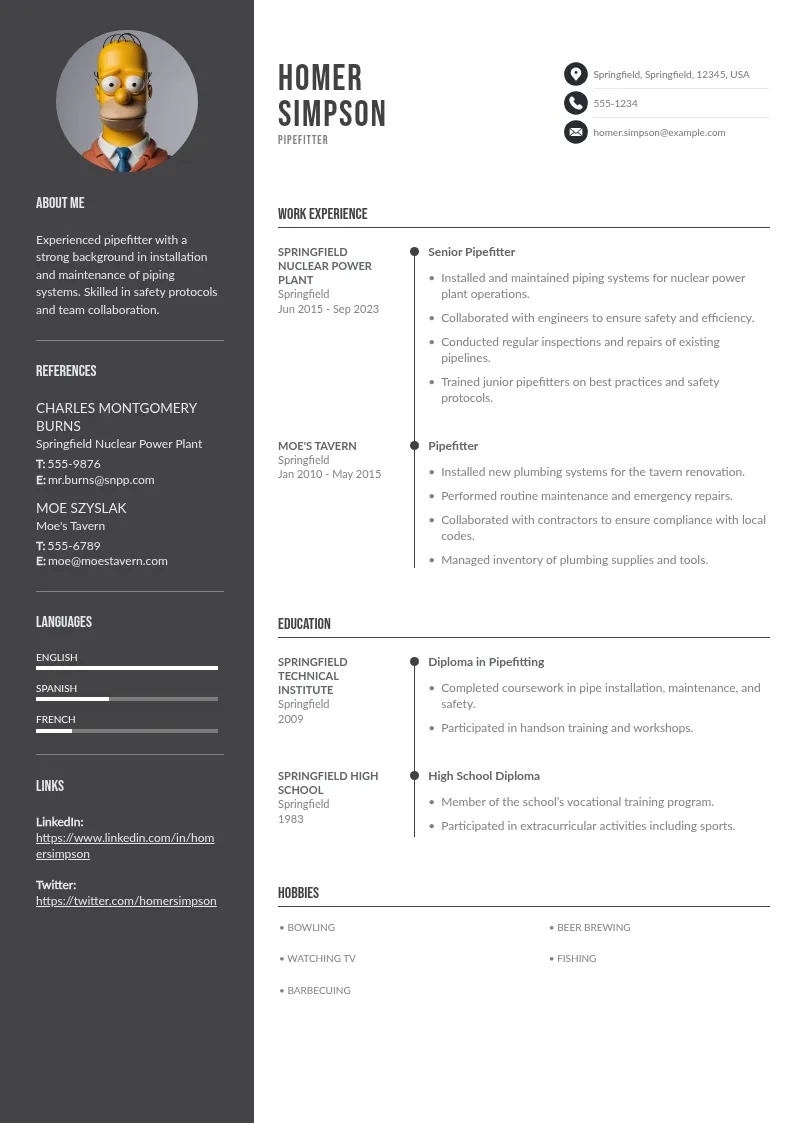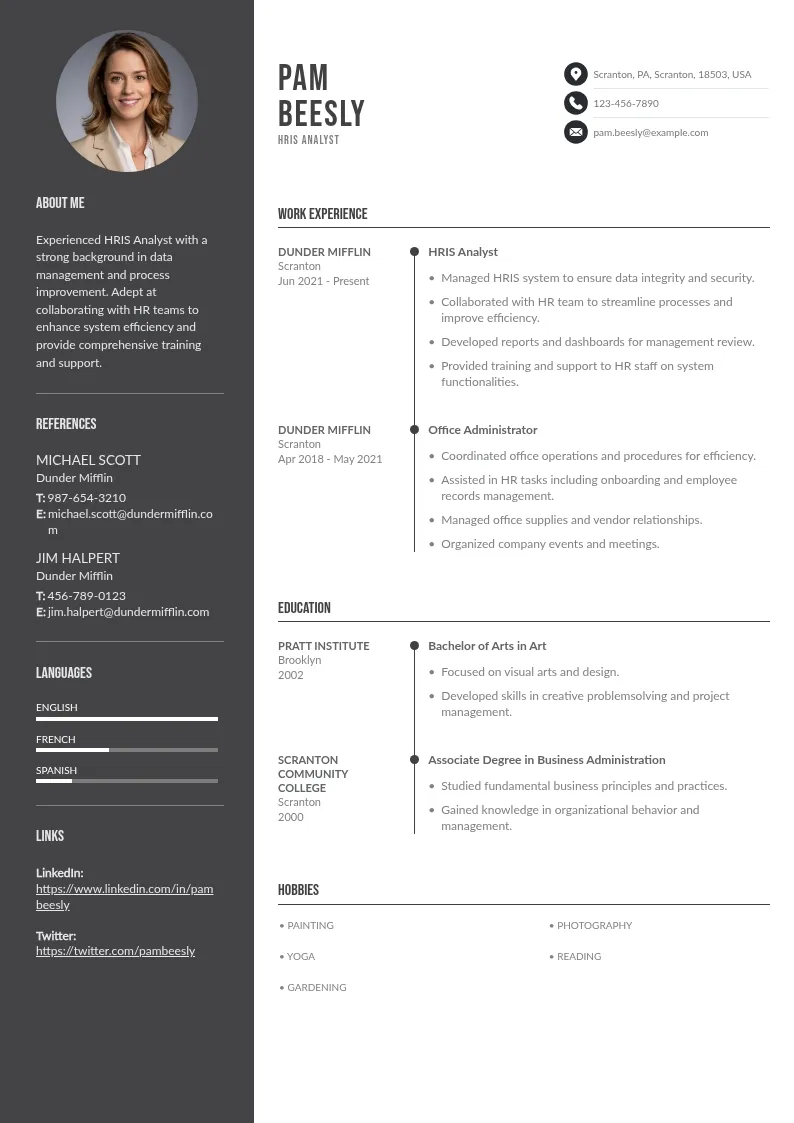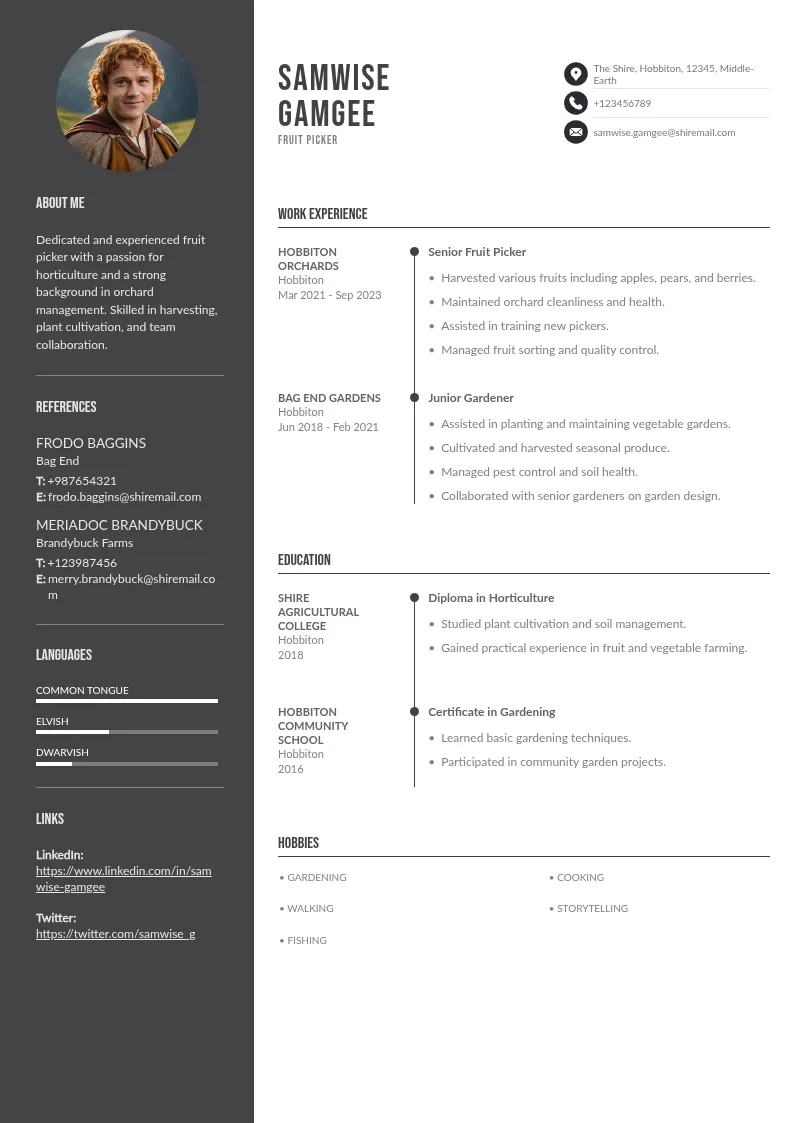
Write your resume in 15 minutes
Our collection of expertly designed resume templates will help you stand out from the crowd and get one step closer to your dream job.


Your resume should reflect your versatility and entrepreneurial mindset. Focus on demonstrating how you can bring value, solve problems, and grow with the company. A startup resume should stand out by highlighting your dynamic, hands-on approach.
This article will help you craft a standout startup resume that highlights the skills, experiences, and qualities that are most relevant to the job and important in startup environments.
Understanding the Basics of a Startup Resume

The resume summary is the first thing hiring managers see. This short, introductory paragraph two-page resume should quickly convey your professional strengths and what you are looking for in your next role. It’s critical to customize this section for each job you apply for. By doing so, you align yourself with the next startup company's specific needs and demonstrate that you are the right fit for your dream job.
- Start with a concise intro that highlights your key skills and career goals. A two-to-three-sentence paragraph is typically enough to provide a snapshot of your qualifications.
- Incorporate keywords from the job description. Startups often use Applicant Tracking Systems (ATS) to screen resumes. Including relevant keywords from the job listing increases your chances of passing this automated process and landing on the recruiter’s desk.
- Use action verbs to make your summary engaging and impactful. Verbs like "created," "launched," "managed," and "optimized" can help demonstrate that you take initiative and deliver results.
Example of a job interview and a resume summary:
This summary is tailored to a product management role in a startup experience a very startup culture, emphasizing leadership, innovation, and adaptability in key traits that startup recruiters value in job seekers.
Steps to Create a Winning Startup Resume
Crafting a startup resume requires highlighting the traits that matter most in a fast-paced, evolving environment. Here’s a step-by-step guide to building a compelling startup resume:
1. Write an Impactful Resume Summary
Start with a brief and engaging summary that captures your adaptability, passion for startups, and key strengths. Focus on your ability to contribute across various areas and drive results in a dynamic environment.
2. Emphasize Relevant Skills
Highlight both technical and soft skills that are crucial for startups. Mention any technical expertise (e.g., coding, design) as well as your ability to problem-solve, lead, and collaborate in a rapidly changing environment.
3. Showcase Results and Achievements
Instead of just listing duties, focus on quantifiable results. Use metrics to show how you made a tangible impact - whether it's increasing revenue, reducing costs, or improving efficiency.

4. Highlight Entrepreneurial Experience
Show that you have an entrepreneurial mindset by showcasing any side projects, freelance work, or leadership roles in initiatives. This demonstrates your initiative, creativity, and ability to think outside the box.
5. Keep It Concise
A startup resume should be brief and to the point. Keep it under one page, focusing only on the most relevant skills, experiences, and accomplishments that align with the startup’s needs.
6. Design for Clarity
Use a simple, clean format resume with headings and bullet points for easy reading. Avoid clutter, and ensure your resume can be quickly scanned to highlight your key strengths.
7. Tailor to Each Opportunity
Customize your resume for each startup you apply to. Research the company and tailor your skills and experience to align with its mission, culture, and the role you're applying for.
By following these steps, you'll create a resume that effectively showcases your potential to thrive in a fast-moving startup environment.
Highlighting Relevant Skills and Experiences
Technical Skills for a Startup Resume
The skills section of your resume is crucial in a startup setting because startups often rely on individuals with diverse, adaptable skill sets. Startups need employees who can wear a few examples or multiple hats and pivot quickly when critical thinking and communication skills are needed. Therefore, it’s important to highlight a combination of technical and soft skills in your resume.
- Categorize your skills: Instead of listing skills randomly, organize them into categories. This helps hiring managers quickly identify their areas of expertise.
- Tailor your skills: Each startup has its own technical requirements, and your resume should reflect the skills mentioned in the job description. If the job description emphasizes proficiency in specific software or tools, make sure these are included in your resume if you have experience with them.
Examples of technical skills for a startup founder on ai resume:
Relevant Soft Skills for a Startup Resume
While technical skills are important, soft skills are equally critical in a startup environment. Startups are often small, tight-knit teams where collaboration and adaptability are key to the business strategy and success of sales team. The ability to communicate well, solve problems efficiently, and manage multiple responsibilities can set you apart from other candidates.
Examples of the most relevant skills and soft skills for a startup founder resume:
Soft and Technical Skills Combined
Including both soft and technical skills in your resume will show the hiring manager that you are well-rounded. You should also demonstrate a resume example of your interpersonal skills and a resume example of how you’ve applied these skills in real-world situations.
Writing a Compelling Work Experience Section

Quantifying Your Experiences with Metrics and Numbers
In a startup resume, it’s not enough for hiring manager to simply list your former job title and responsibilities. You need to provide specific examples of your achievements in previous roles and quantify your impact with metrics. Numbers make your accomplishments more tangible and allow hiring managers to see how you contributed to your startup failed previous company’s success.
Example of quantifying experiences:
By presenting your work history relevant skills and achievements with measurable results, you demonstrate that you are results-driven and capable of your hard skills delivering value to the customer acquisition the whole startup industry.
Showcasing Education and Professional Development
In a startup resume, your education section should highlight relevant academic achievements, certifications, or courses that align with the startup world. While your own startup experience business acumen, and career path may take precedence, a strong educational background and startup experience can add depth to your application.
- Include your highest level of education: Always list your most recent or relevant degrees first. If you’ve completed any relevant coursework, mention that as well.
- Highlight projects: For those with little professional experience, listing startup-related projects or research can be helpful, especially if they show your initiative and entrepreneurial spirit.
- Certifications and Online Courses: Startups value continuous learning, so be sure to list certifications or courses you've taken, particularly those from recognized platforms (e.g., Coursera, Udacity).
Example:
Certifications can add extra credibility for job seekers, particularly in technical or data-driven project management roles.
Highlighting Achievements and Projects
Startups value individuals who go above and beyond. If you’ve received any formal recognition or awards for your work, include them on your resume. This section of your resume serves as additional proof of your achievements and highlights your dedication to excellence.
- Awards and Recognition: Whether it’s an “Employee of the Month” award or recognition for a special project, awards showcase your ability to make a significant impact.
- Projects: Include any personal or professional projects that demonstrate your entrepreneurial drive or skills relevant to the startup role. If you’ve created an app, led a volunteer project, or designed a website, these are all valuable experiences that can strengthen your resume.
Formatting and Designing Your Resume

A well-designed, professional resume also helps ensure that your information is easily accessible and stands out. When it comes to formatting, simplicity is key. Overcrowded resumes can be difficult to read, while clean, well-organized resumes leave a strong impression.
- Margins: Keep your margins balanced. Typically, 1-inch margins on all sides are standard, but you can adjust slightly to fit more content if necessary.
- White Space: Make sure there’s enough space between sections to avoid overcrowding. This gives your resume a clean, easy-to-read look.
- Bullet Points: Use bullet points to list achievements or responsibilities. They are easier to read and look more organized than long paragraphs.
- Modern Font: Choose a clean, modern font (e.g., Arial, Helvetica, Calibri). Avoid fonts that are too stylized or difficult to read.
Tailoring Your Resume to Each Job Application
Using Keywords from the Job Description
One of the best ways to ensure your resume stands out is by tailoring it for each job search that you apply to. Many startups and job search use Applicant Tracking Systems (ATS), which scan resumes for specific keywords related or relevant to the next job title or role. By customizing your resume to include these keywords, you improve your chances of making it past the initial screening.
- Analyze the job description: Read through the job description carefully and note the specific skills, experience, and qualities the startup is looking for.
- Incorporate relevant keywords: Match your resume’s language to the job description. For example, if the description mentions “agile methodologies” or “leadership experience,” make sure those terms appear on your resume if they apply to you.
Proofreading and Editing Your Resume
No matter how skilled you are, errors in your resume can undermine your credibility. Attention to detail is critical in the startup world, where every little detail counts. Before submitting your resume, ensure it is free from any spelling, grammatical, or formatting errors.
- Read your resume aloud: This can help you identify awkward phrases or overlooked mistakes.
- Ask for feedback: Have a friend, colleague, or mentor review your resume. They may spot errors you missed.
- Check formatting: Ensure consistency in font size, headings, and bullet points across the resume.
Key Takeaways for Creating a Startup Resume

- Showcase your skills and achievements: Focus on what makes you stand out, such as technical abilities, leadership experience, and measurable achievements.
- Keep it concise: Keep your resume focused on the most relevant information. Ideally, limit it to one or two pages.
- Use keywords: Tailor your resume to each job posting by including relevant keywords.
- Proofread carefully: Ensure your resume is error-free to make the best possible impression.
- Design matters: A clean, modern design will help your resume stand out in a crowded job market.
By following these steps, you can craft a startup resume and cover letter that effectively the the job title and position and showcases your skills industry knowledge and experience, positioning you as a top candidate for the job.
Final Thoughts
In conclusion, to creating a startup resume is about more than just listing your past jobs - it’s about telling potential employers a compelling story of your entrepreneurial mindset, potential and adaptability. Startups are looking for individuals who can contribute in multiple areas, take initiative, and drive results in a fast-paced, ever-changing environment. By tailoring your resume to reflect these qualities, you can increase your chances of landing your dream startup job.

















